The Remarkable Sarah Bickford
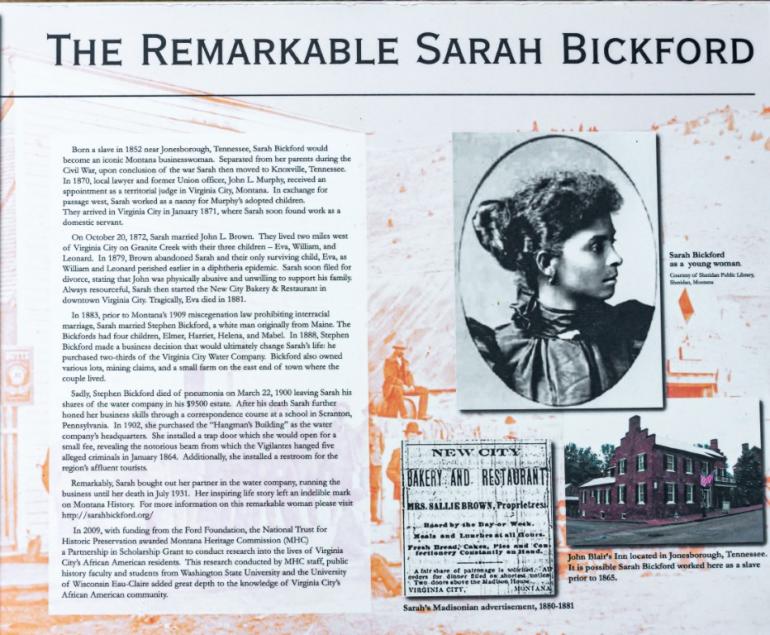
An extraordinary African-American woman and former slave left a large, indelible mark on Montana's early history. Sarah ("Sallie") Bickford was an ambitious, hard working, independent, resourceful, strong woman – the traits that many pioneering women had to display to survive the early days in Montana. She seems to have not only survived, but thrived in the end.
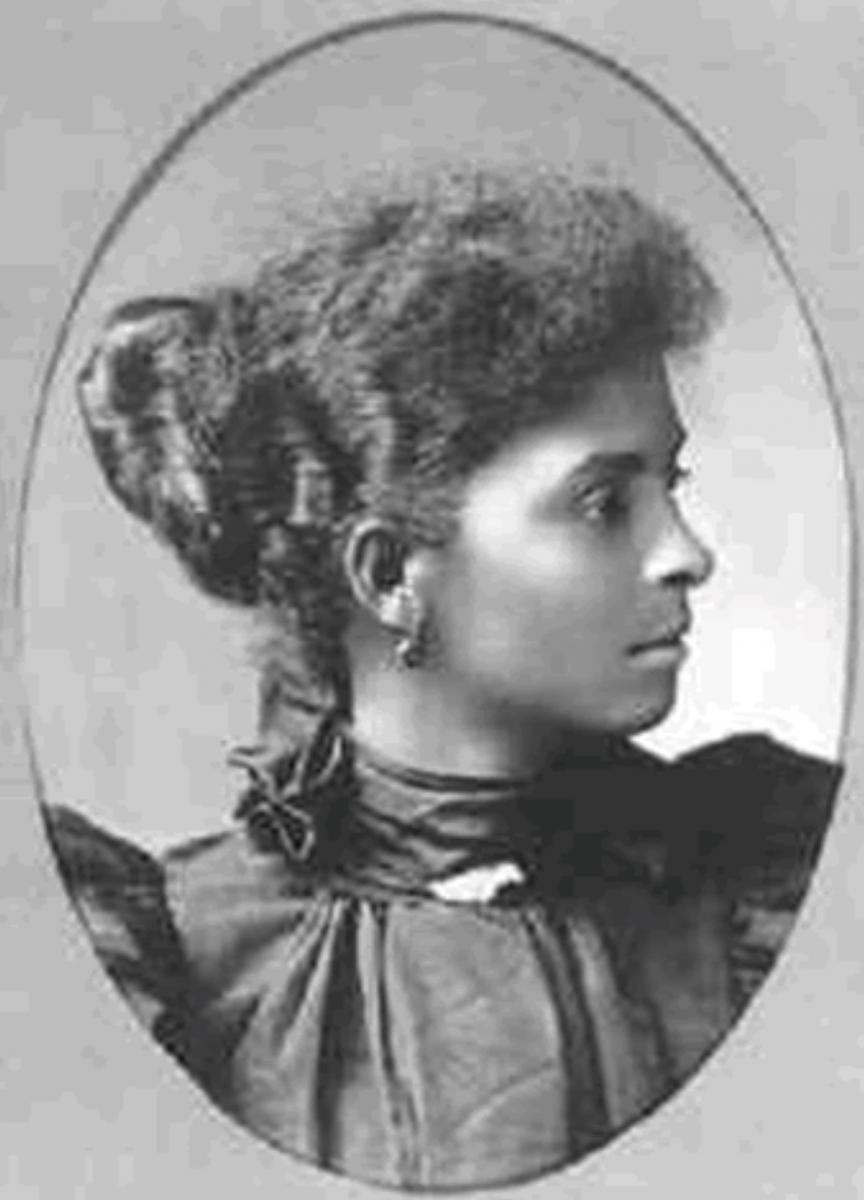 On April 10, 2012, the State of Montana honored Sarah Bickford by inducting her into the Gallery of Outstanding Montanans in the Capitol Rotunda in Helena. As a former slave who became one of Montana's most prominent early businesswomen, Bickford certainly deserved this honor. So who was Sarah Bickford, why was she remarkable and how did she earn this honor?
On April 10, 2012, the State of Montana honored Sarah Bickford by inducting her into the Gallery of Outstanding Montanans in the Capitol Rotunda in Helena. As a former slave who became one of Montana's most prominent early businesswomen, Bickford certainly deserved this honor. So who was Sarah Bickford, why was she remarkable and how did she earn this honor?
I first learned of her while visiting Montana's Virginia City – a self-guided open-air museum and a looking glass into the past of what life looked like in a Montana gold rush town. Many buildings sport historical plaques explaining their role in early Virginia City life. One of them, Hangman's Building, has become steeped in Montana's "Vigilante Lore."
It is where vigilantes hung five "road agents" in January, 1864. The building was under construction at the time, and it afforded accessible rafters from which the outlaws could "swing." Next to this building is a plaque about Sarah Bickford. I found her story there to be very compelling, and it prompted me to get to know her a bit more.
Sarah's story starts back east, in Tennessee before the civil war. She is believed to have been born in 1852. Being born into slavery, she was separated from her parents at a young age - like many slave families. After the Emancipation Proclamation of 1862, she moved to Knoxville and lived with her aunt while working as a domestic servant. It was during this time that she met John Luttrell Murphy, a local attorney who had been appointed associate justice of the Territorial Supreme Court in Virginia City, Montana Territory, and was soon headed west. He needed someone to look after his two foster children for the long journey. Sarah, then still a teenager, was hired as a nanny in exchange for the passage west and a new life. They left in 1870 and arrived in Virginia City in January 1871. Murphy didn't stay long, however, Sarah never left. In Volume 1 of the "Pioneer Trails and Trials," it was said of her that "Her resourcefulness and pleasant manner enabled her to adjust to western ways."
I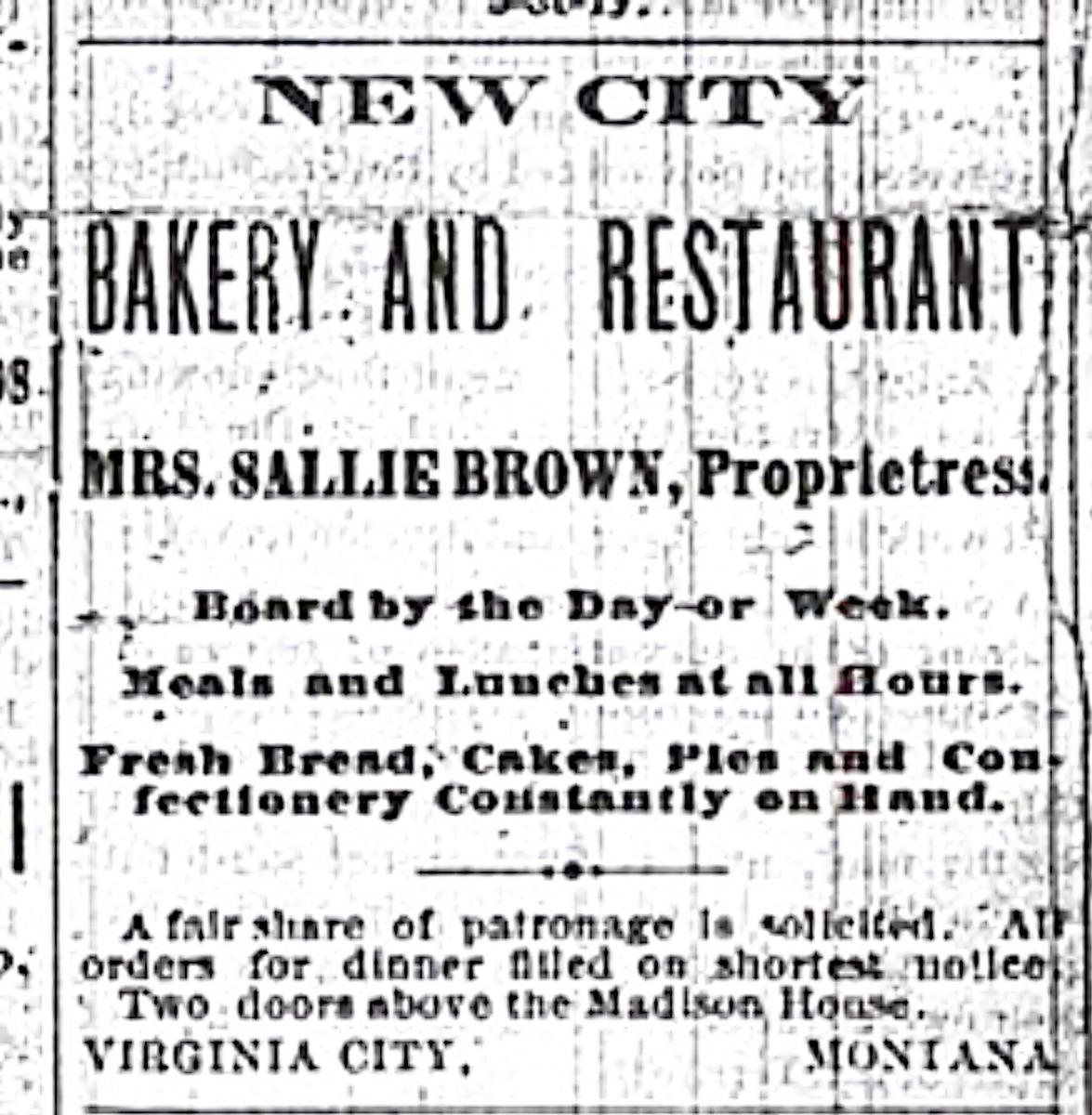 nitially, she worked as a chambermaid at the Madison House Hotel, and in 1872, married John Brown, an African-American miner. Between them, they had 3 children – two boys and a girl, but it was not a happy time for Sarah. The boys died at a young age from diphtheria. John Brown was a very abusive husband - she suffered beatings, death threats and desertion. In November 1880, she successfully sued for divorce and sole custody of their remaining child, 7-year old Eva.
nitially, she worked as a chambermaid at the Madison House Hotel, and in 1872, married John Brown, an African-American miner. Between them, they had 3 children – two boys and a girl, but it was not a happy time for Sarah. The boys died at a young age from diphtheria. John Brown was a very abusive husband - she suffered beatings, death threats and desertion. In November 1880, she successfully sued for divorce and sole custody of their remaining child, 7-year old Eva.
In a male-dominated mining town of the nineteenth century, this required great courage and determination for any woman, let alone a woman of color. Eva died two years later. Now, for the second time in her life, Sarah again suffered the loss of her entire family.
After working briefly for French-Canadian immigrant, Adaline Laurin, Sarah opened her own business, "The New City Bakery and Restaurant". Her regular advertisements in the local newspaper, the Madisonian, read: "New City Bakery and Restaurant;
Mrs. Sallie Brown, proprietress; Board by the Day or Week; Meals and Lunches at all Hours; Fresh Bread, Cakes, Pies and Confectionery Constantly on Hand." She successfully managed this business through the 1880s.
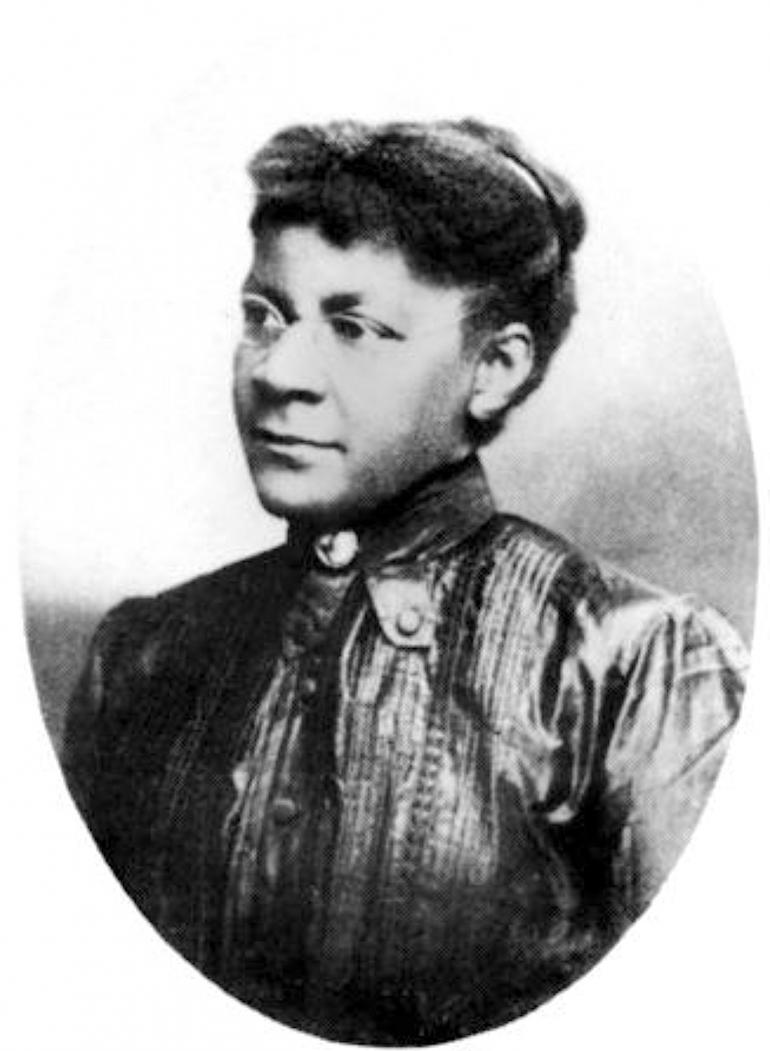
In 1883, Sarah Brown married a white miner and farmer named Stephen Bickford, who had come to Montana from Maine during the gold rush of the 1860s. Sarah and Stephen had 4 children - 3 girls and 1 boy.
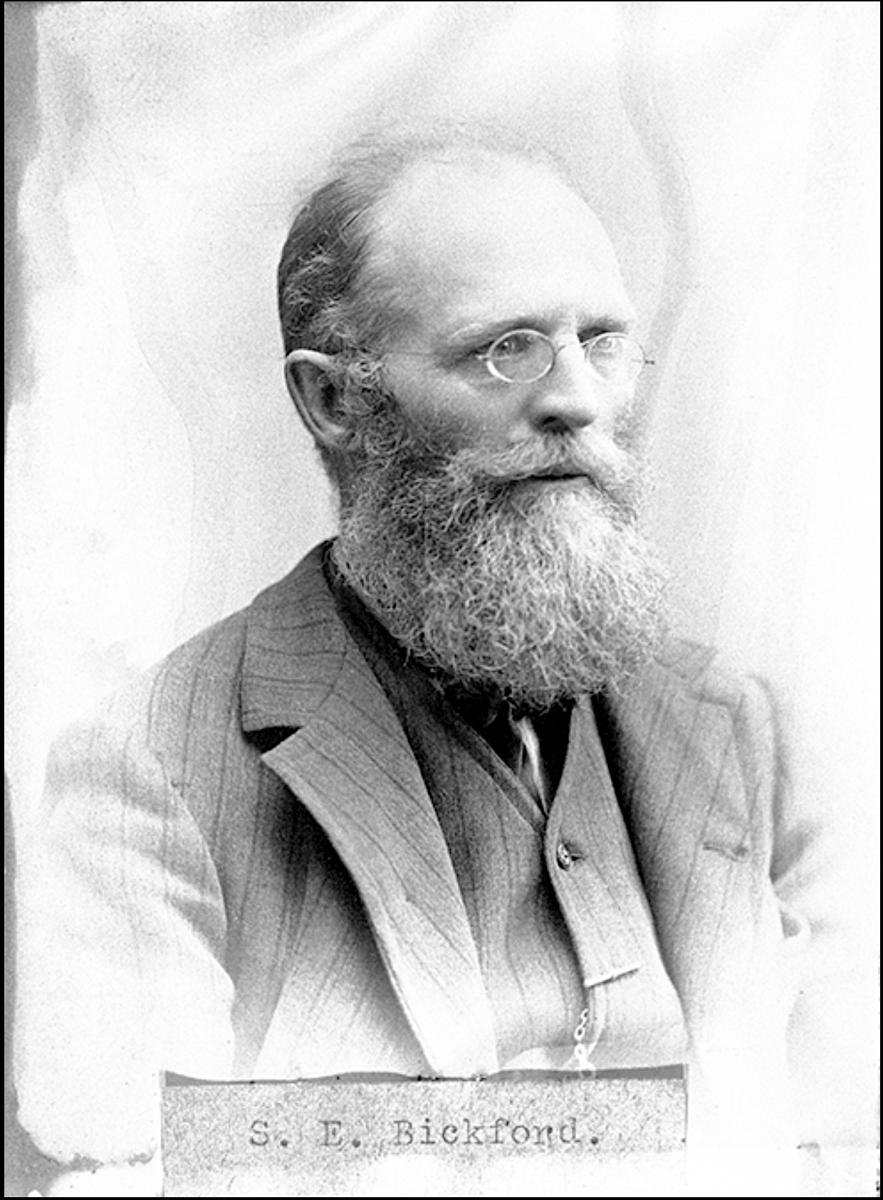
The Bickfords had a keen business sense. In 1880, they purchased a two-thirds share in the Virginia City Water Company, the utility responsible for providing drinking water to Virginia City residents. Sarah became personally involved as the company's bookkeeper. In 1890, the couple moved to a home on property east of Virginia City that had been used as a truck farm, which produced fruits, vegetables, and poultry for area residents. Now known as the Bickford House, it is currently owned by the Montana Heritage Commission.
When Stephen Bickford died in 1900, his will provided her with some significant resources. This included the two-thirds interest in the Virginia City Water Company, their farm, some Virginia City town lots, various interests in nearby gold mining claims, and one share of stock in the Southern Montana Telegraph and Electric Company.
She now assumed control of the water company, managing and directing all company matters, including managing the books and billing customers. She also continued to manage their truck farm east of the city. She took a course in Business Management from a correspondence school in Scranton, Pennsylvania, to become more capable of conducting the affairs of the water business. By 1902 she had bought out the remaining interests in the Water Company.
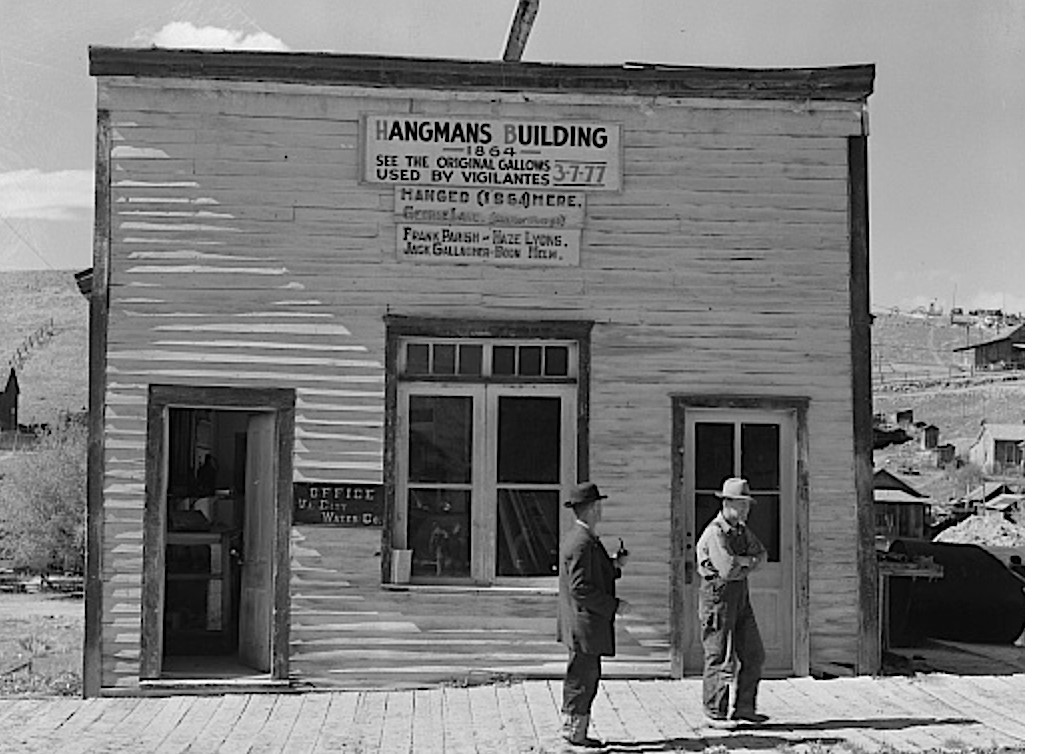
Having an eye for business opportunities, she then purchased the Hangman's Building, which she made her official office. She realized the potential of tourism, especially the growing numbers of travelers on their way to Yellowstone National Park. She installed a trapdoor in the ceiling which she, for a fee, could open to reveal the beam where vigilantes hung those 5 "road agents". She even provided restrooms for the comfort of the paying curious. Sarah continued to expand the business, acquiring natural springs and building a reservoir to supply the region's growing population.
Sarah "Sallie" Bickford became the only black woman in Montana, and possibly in the United States, to own a utility company. Known as "Montana's First Career Woman," She managed the Virginia City Water Company until she died in 1931.
Sarah Bickford always did what she had to do. She had the determination to battle gender and racial stereotypes and prejudices, to step out of her accepted domestic role and became a top-notch businesswoman. They say the cream always rises to the top.
In Sarah's case, she rose from the very bottom of slavery to becoming a successful "frontier" entrepreneur and well respected by her community. Throughout her journey, she triumphed over tragedy, but she never forgot those she had lost. When she died, a portrait of her daughter, Eva, was at her bedside.
Her obituary in the local newspaper, The Madisonian, in part, read: "the sudden death Sunday of Mrs. Sarah Bickford, owner and proprietress of the Virginia City Water company, cast a distinct gloom over the community, which feels, in her passing, the loss of one of its most loyal pioneer citizens and devoted mothers."There is no doubt that Sarah "Sallie" Bickford was, indeed, a truly remarkable woman - for any age!
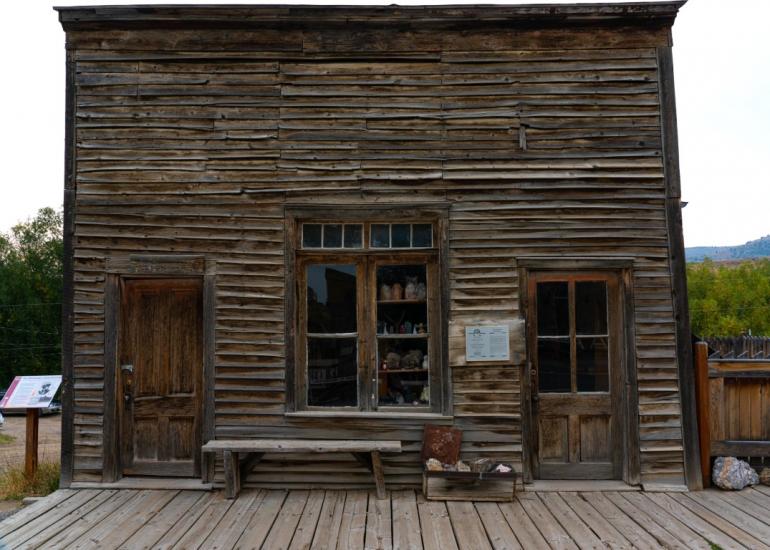
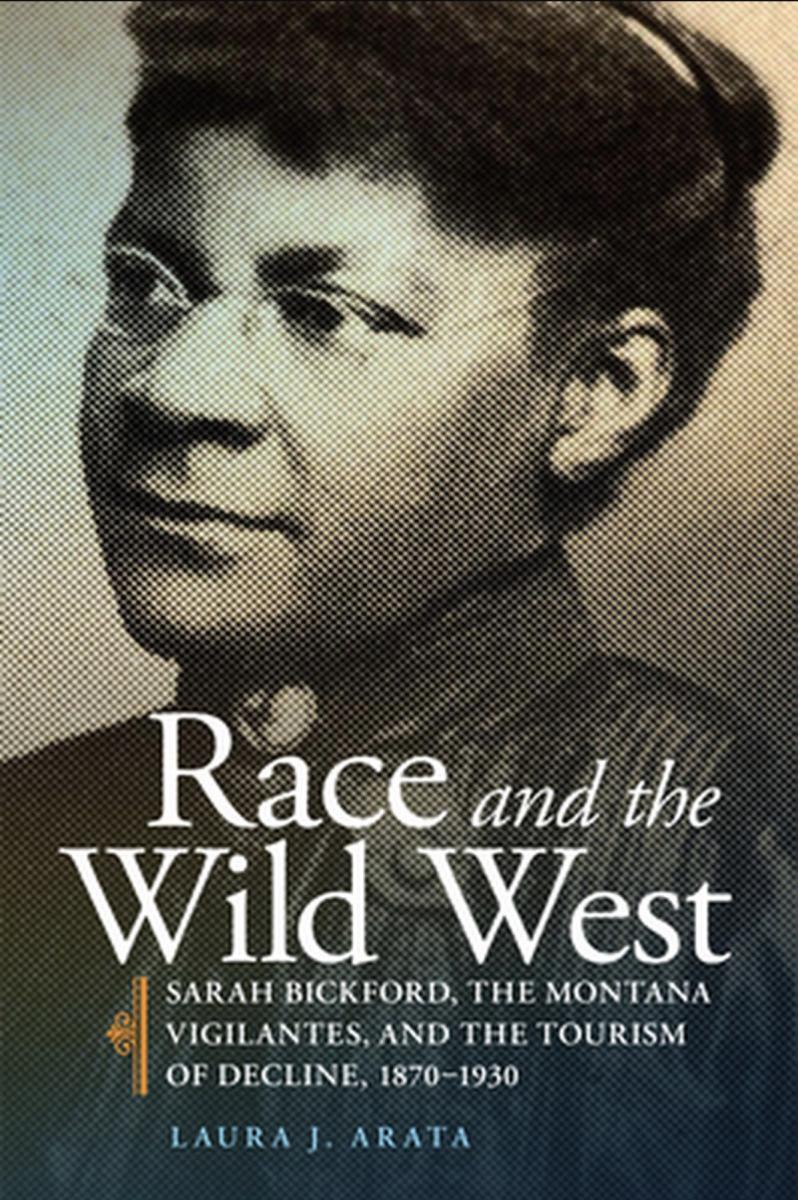 Author's note: In researching this article, the author drew upon several references. At times the information conflicted. Every effort was made to use the most reliable information available. Recent research by Dr. Laura Arata and colleagues have shred new light on Sarah Bickford's life, especially her early years in Tennessee. She has compiled this in a new book, "Race and the Wild West."
Author's note: In researching this article, the author drew upon several references. At times the information conflicted. Every effort was made to use the most reliable information available. Recent research by Dr. Laura Arata and colleagues have shred new light on Sarah Bickford's life, especially her early years in Tennessee. She has compiled this in a new book, "Race and the Wild West."
Resources:
https://sarahbickford.org/
https://en.wikipedia.org/wiki/Sarah_Bickford
http://montanawomenshistory.org/celebrating-sarah-gammon-bickford/




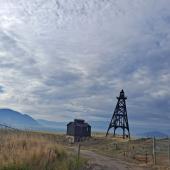




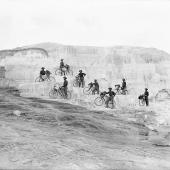
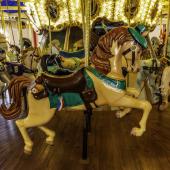
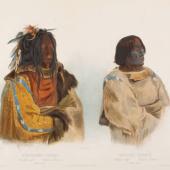
- Reply
Permalink